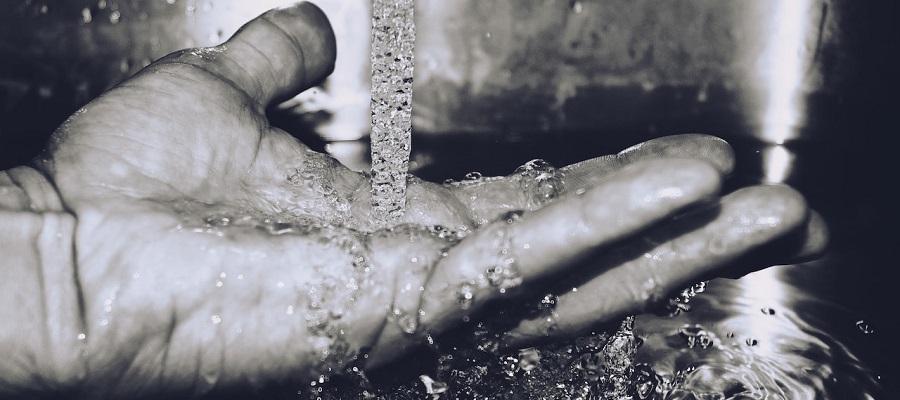Drinking water is essential for good health. Water plays a vital role in many bodily functions, including regulating body temperature, maintaining the balance of bodily fluids, and removing waste and toxins from the body.
Not getting enough water can lead to dehydration, which can cause symptoms like thirst, dry mouth, fatigue, and dizziness. In severe cases, dehydration can lead to more serious health problems.
It is important to drink enough water to stay hydrated, especially in hot weather or during physical activity. The amount of water needed can vary depending on factors such as age, weight, and activity level. The American Council on Exercise recommends that adults aim for at least 64 ounces of water per day.
In addition to plain water, other beverages like milk, juice, and tea, as well as foods like fruits and vegetables, can also contribute to hydration. However, it is important to be mindful of the sugar and calorie content of these options, as some can be high in added sugars or calories.
How to Calculate how much water should I drink daily?
If you want to get a more personalized estimate of your hydration needs, there are a few ways to calculate it. One method is to use your body weight to determine your daily water intake. According to this method, you should drink about half an ounce of water for every pound of body weight. For example, if you weigh 150 pounds, you should aim to drink 75 ounces of water per day.
Another way to calculate your hydration needs is to use the "Rule of Thumb." This method involves dividing your body weight in half and using that number as the number of ounces of water you should drink daily. For example, if you weigh 150 pounds, you should aim to drink 75 ounces of water per day.
Factors That Can Impact how much water should I drink daily?
There are a number of factors that can impact your hydration needs, and it's important to consider these when determining how much water you should drink daily. Some of the factors that can affect your hydration needs include:
-
Age: As we age, our bodies become less efficient at retaining water, which means we may need to drink more to stay hydrated.
-
Gender: Men typically have a higher water intake requirement than women, as they tend to have more muscle mass, which requires more water to function properly.
-
Climate: If you live in a hot or humid climate, you may need to drink more water to compensate for the fluids lost through sweat.
-
Physical activity: If you are physically active, you may need to drink more water to replace the fluids lost through sweat during exercise.
-
Medical conditions: Certain medical conditions, such as kidney problems or diabetes, can impact your hydration needs. If you have a medical condition, it's important to consult with your healthcare provider about your hydration needs.
How much water should I drink daily?
Drinking enough water is essential for good health, as it plays a vital role in many bodily functions. Water helps to regulate body temperature, maintain the balance of bodily fluids, and remove waste and toxins from the body. Not getting enough water can lead to dehydration, which can cause symptoms like thirst, dry mouth, fatigue, and dizziness. In severe cases, dehydration can lead to more serious health problems.
So, how much water should you drink daily to stay hydrated and maintain good health? The amount of water needed can vary depending on a number of factors, including age, weight, and activity level. Here are some general guidelines for how much water adults should aim for each day:
-
The Institute of Medicine recommends that adult men consume about 3.7 liters (125 ounces) of water per day, and that adult women consume about 2.7 liters (91 ounces) of water per day. This includes water from all sources, including beverages and food.
-
The American Council on Exercise recommends that adults aim for at least 64 ounces (8 cups) of water per day. This is a good starting point, but it is important to note that individual needs may vary.
-
The National Academy of Medicine recommends that adults consume "adequate amounts" of water, which is defined as "the amount that meets an individual's needs." It is not possible to give a specific recommendation for how much water everyone should drink, as needs can vary greatly.
It is important to pay attention to your body's thirst signals and to drink enough water to stay hydrated. In general, it is a good idea to drink water throughout the day, rather than waiting until you feel thirsty. Some signs that you may be dehydrated include thirst, dry mouth, fatigue, and dizziness. If you are experiencing these symptoms, it is a good idea to drink more water.
In addition to plain water, other beverages like milk, juice, and tea, as well as foods like fruits and vegetables.
How much water should I drink daily based on my weight?
Determining how much water to drink daily based on your weight can be a helpful way to ensure that you are getting enough water each day. Water is essential for good health, as it helps to regulate body temperature, maintain the balance of bodily fluids, and remove waste and toxins from the body. Not getting enough water can lead to dehydration, which can cause symptoms like thirst, dry mouth, fatigue, and dizziness. In severe cases, dehydration can lead to more serious health problems.
To determine how much water you should drink daily based on your weight, you can use the following general guidelines:
-
For every pound of body weight, you should aim to drink at least 0.5 ounces of water. For example, if you weigh 150 pounds, you should aim to drink at least 75 ounces of water per day.
-
Another way to determine your daily water needs is to divide your body weight in half and drink that number in ounces of water. For example, if you weigh 150 pounds, you should aim to drink at least 75 ounces of water per day.
-
It is important to note that these are general guidelines and that individual needs may vary. Factors such as age, gender, activity level, and climate can all affect your water needs.
It is a good idea to drink water throughout the day, rather than waiting until you feel thirsty. Some signs that you may be dehydrated include thirst, dry mouth, fatigue, and dizziness. If you are experiencing these symptoms, it is a good idea to drink more water.
In addition to plain water, other beverages like milk, juice, and tea, as well as foods like fruits and vegetables, can also contribute to hydration. However, it is important to be mindful of the sugar and calorie content of these options, as some can be high in added sugars or calories.
In conclusion, determining how much water to drink daily based on your weight can be a helpful way to ensure that you are getting enough water each day. It is important to pay attention to your body's thirst signals and to drink enough water to stay hydrated. Individual needs may vary, so it is a good idea to adjust your water intake based on your personal needs and lifestyle.
How much water should I drink daily based on my age?
Determining how much water to drink daily based on your age can be a helpful way to ensure that you are getting enough water each day. Water is essential for good health, as it helps to regulate body temperature, maintain the balance of bodily fluids, and remove waste and toxins from the body. Not getting enough water can lead to dehydration, which can cause symptoms like thirst, dry mouth, fatigue, and dizziness. In severe cases, dehydration can lead to more serious health problems.
The amount of water that adults should drink each day can vary depending on their age. Here are some general guidelines for how much water adults should aim for based on their age:
-
Children and teenagers: The American Council on Exercise recommends that children and teenagers aim for at least 5 cups (40 ounces) of water per day. This is a good starting point, but it is important to note that individual needs may vary.
-
Adults: The Institute of Medicine recommends that adult men consume about 3.7 liters (125 ounces) of water per day, and that adult women consume about 2.7 liters (91 ounces) of water per day. This includes water from all sources, including beverages and food. The American Council on Exercise recommends that adults aim for at least 64 ounces (8 cups) of water per day.
-
Older adults: As we age, our bodies become less efficient at regulating body temperature and maintaining hydration. It is important for older adults to pay extra attention to their hydration needs and to drink enough water to stay hydrated.
It is a good idea to drink water throughout the day, rather than waiting until you feel thirsty. Some signs that you may be dehydrated include thirst, dry mouth, fatigue, and dizziness. If you are experiencing these symptoms, it is a good idea to drink more water.
In addition to plain water, other beverages like milk, juice, and tea, as well as foods like fruits and vegetables, can also contribute to hydration. However, it is important to be mindful of the sugar and calorie content of these options, as some can be high in added sugars or calories.
In conclusion, determining how much water to drink daily based on your age can be a helpful way to ensure that you are getting enough water each day. It is important to pay attention to your body's thirst signals and to drink enough water to stay hydrated. Individual needs may vary, so it is a good idea to adjust your water intake based on your personal needs and lifestyle.
What happens when I start drinking enough water?
Drinking enough water is essential for good health, as water plays a vital role in many bodily functions. When you start drinking enough water, you may experience a number of benefits, including:
-
Improved energy levels: Dehydration can cause fatigue and low energy levels. When you drink enough water, you may notice an increase in energy and alertness.
-
Better digestion: Water helps to flush waste and toxins from the body, which can improve digestion. Drinking enough water can help prevent constipation and promote regular bowel movements.
-
Improved skin health: Adequate hydration can help to keep your skin looking healthy and radiant. Dehydration can cause your skin to look dry and dull.
-
Improved brain function: Water is essential for proper brain function. Dehydration can affect cognitive abilities, such as memory and concentration. Drinking enough water can help improve brain function.
-
Enhanced physical performance: Adequate hydration is important for physical performance, particularly during exercise. Drinking enough water can help prevent fatigue and improve endurance.
In conclusion, when you start drinking enough water, you may experience a number of benefits, including improved energy levels, better digestion, improved skin health, improved brain function, and enhanced physical performance.
Tips for Staying Hydrated
Staying hydrated is important for overall health and well-being, and there are a few simple steps you can take to ensure you are getting enough water each day. Here are a few tips for staying hydrated:
-
Carry a water bottle: Having a water bottle with you at all times makes it easy to stay hydrated throughout the day. Whether you're at work, running errands, or out for a walk, having a bottle of water with you will remind you to drink up and help you reach your daily hydration goals.
-
Drink water before, during, and after physical activity: It's important to stay hydrated during exercise, so be sure to drink water before, during, and after physical activity. Aim to drink about 17-20 ounces of water two hours before exercising, and then continue to drink water throughout your workout. After exercise, be sure to rehydrate by drinking water or a sports drink to replace fluids lost through sweat.
-
Eat water-rich foods: In addition to drinking water, you can also stay hydrated by eating foods that are high in water content. Some examples of water-rich foods include fruits and vegetables such as watermelon, cucumbers, and berries.
-
Drink water when you're feeling hungry: Sometimes when we feel hungry, we may actually be thirsty. If you're feeling hungry, try drinking a glass of water before reaching for a snack. This can help you stay hydrated and may also help to curb your appetite.
-
Monitor your urine color: Your urine can be a good indicator of your hydration levels. If your urine is pale yellow or clear, you are likely hydrated. If it's dark yellow or amber, you may be dehydrated and should drink more water.
By following these tips and making an effort to drink enough water each day, you can ensure that you are properly hydrated and feeling your best.


